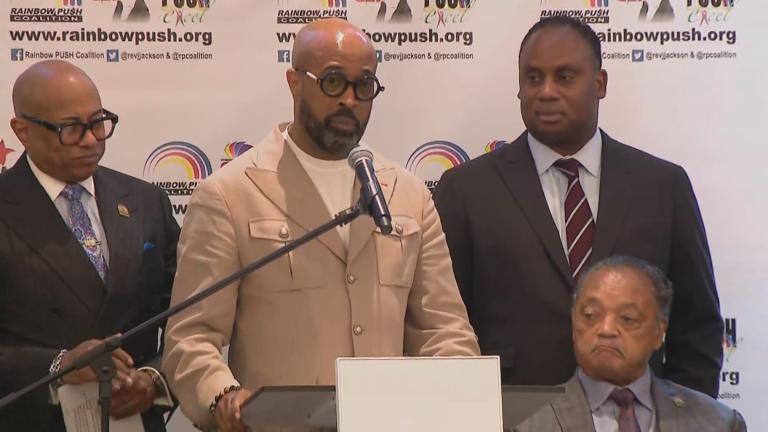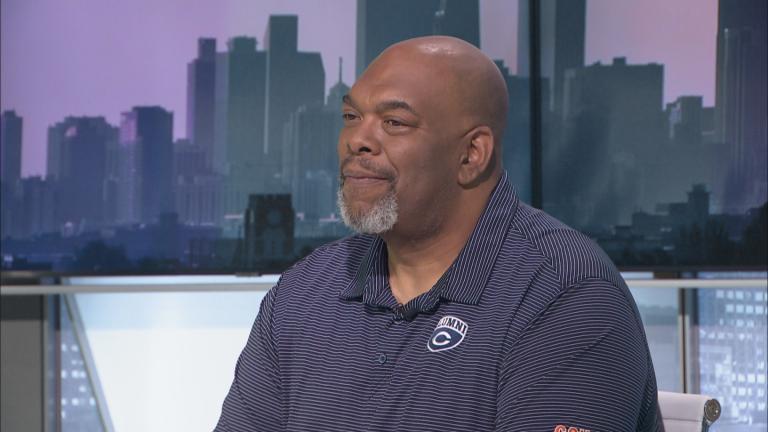The first major overhaul of the Free Application for Federal Student Aid, of FAFSA, form since the Reagan era was supposed to make the process simpler and quicker.
So far, that’s not been the case.
The new FAFSA process has been beset by delays that have the U.S. Department of Education scrambling for a fix to relieve the burden on student admissions offices amid congressional criticism. That has left many college-bound students in limbo as they await financial aid offers.
“This FAFSA rollout is just the worst rollout ever right now,” said Rich Hayes, executive director of student financial aid and scholarships at the University of Illinois Chicago.
Hayes said that while he understood this was the biggest change to the application process in 40 years, he criticized the “vague communication” from the Department of Education.
“It affects our financial aid officers in such a detrimental way because now we’re scrambling to create contingency plans around how do we help students,” said Hayes, who noted that more affluent students and institutions are less impacted by the delays while lower-income students are left with uncertainty. “We’re talking about students who are in the city of Chicago, who are low income, who need this money to go to college.”
Hayes said he believes the Department of Education was rushed into rolling out the new FAFSA changes before they were ready.
“They’ve been working on this for three years, right?” Hayes said. “And the reason they had to push it out now is because it was mandated by Congress. I think they needed more time. I think they’re doing the best that they can with what they have because this has never been done to this scale before.”
Nameka Bates, managing director of college access at Chicago Scholars, which supports students as they apply for and enter college and prepare for future careers, said the initial problems were related to the delayed release of the new application form. But those problems have largely been overcome in time for students to be able to complete their applications.
“The hiccup now is on the opposite end,” Bates said. “So now that the form has been completed, now the calculation of what awards students will be able to get is the bottleneck. Many, many students have not received their award letter.”
Bates said that while some schools may have the capacity to process the applications and provide students a sense of what financial aid they may receive, schools with fewer resources may not.
“There are some schools that have the capacity to be able to provide some sense of what that aid will look like,” Bates said. “And so they’ve been sending out some of those (letters) — some of those private institutions that are not solely dependent upon government grants and things like that. So there are some students who have some ideas (as to what their financial aid package may be), but for the majority of our student scholars it just creates a lot of uncertainty during a time that they would normally have a decision.”
Savannah Phillips, a senior at Gwendolyn Brooks High School, is still waiting to hear what financial aid she may receive.
“A lot of the scholarships require things needed from the FAFSA or your CSS profile,” Phillips said. “And the CSS profile also relies on things like your W-2 forms and more information about your parents’ salary from the FAFSA. So due to the fact of being pushed back, a lot of the information and awards letters we won’t receive until a lot later in the college application process, which has definitely made things a little bit more difficult for my family financially, because we won’t be able to know where we’ll be as a family until later than April probably.”
Phillips, who plans to major in economics, said that while the delays have caused her some anxiety, she’s confident that she is college-bound even if she doesn’t yet know which college she will attend.
“Initially, I did have a little bit more anxiety about the process because it was my first time applying to college and things of that nature so I kind of wanted everything done on my schedule,” Phillips said. “However, me not being able to control the FAFSA and the government and things of that sort, it definitely has taught me that I can’t control everything. And my anxiety, my parents have definitely helped me get control of that. They’ve provided me reassurance that everything will be OK. At the end of the day, we’re going to figure it out as a family.”








